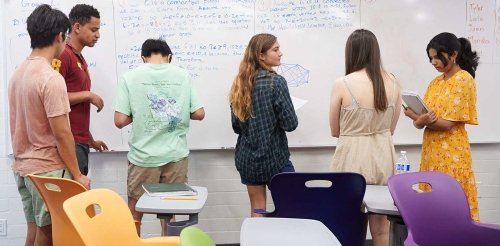Summer Session Course Schedule

Summer Session at Pitzer College offers a variety of courses across disciplines within a six-week program.
- Course offerings are subject to enrollment minimums and caps, and so it is possible that some courses will not actually run or will close.
- Students who plan to take a summer class(es), should select 1-2 alternative classes in case their chosen class is cancelled or closed.
How to Register
- Pitzer Students: You may register via MyCampus2 Portal based on the registration dates listed on the Pitzer academic calendar.
- Non-Pitzer Students: You may select your course(s) by submitting the Visiting Student Registration Form.
Important Registration Dates
- Priority Registration: March 2 — April 10
- Late Registration: April 11 - May 7
*Subject to a late registration fee of $150.
Questions? Email registrar@pitzer.edu